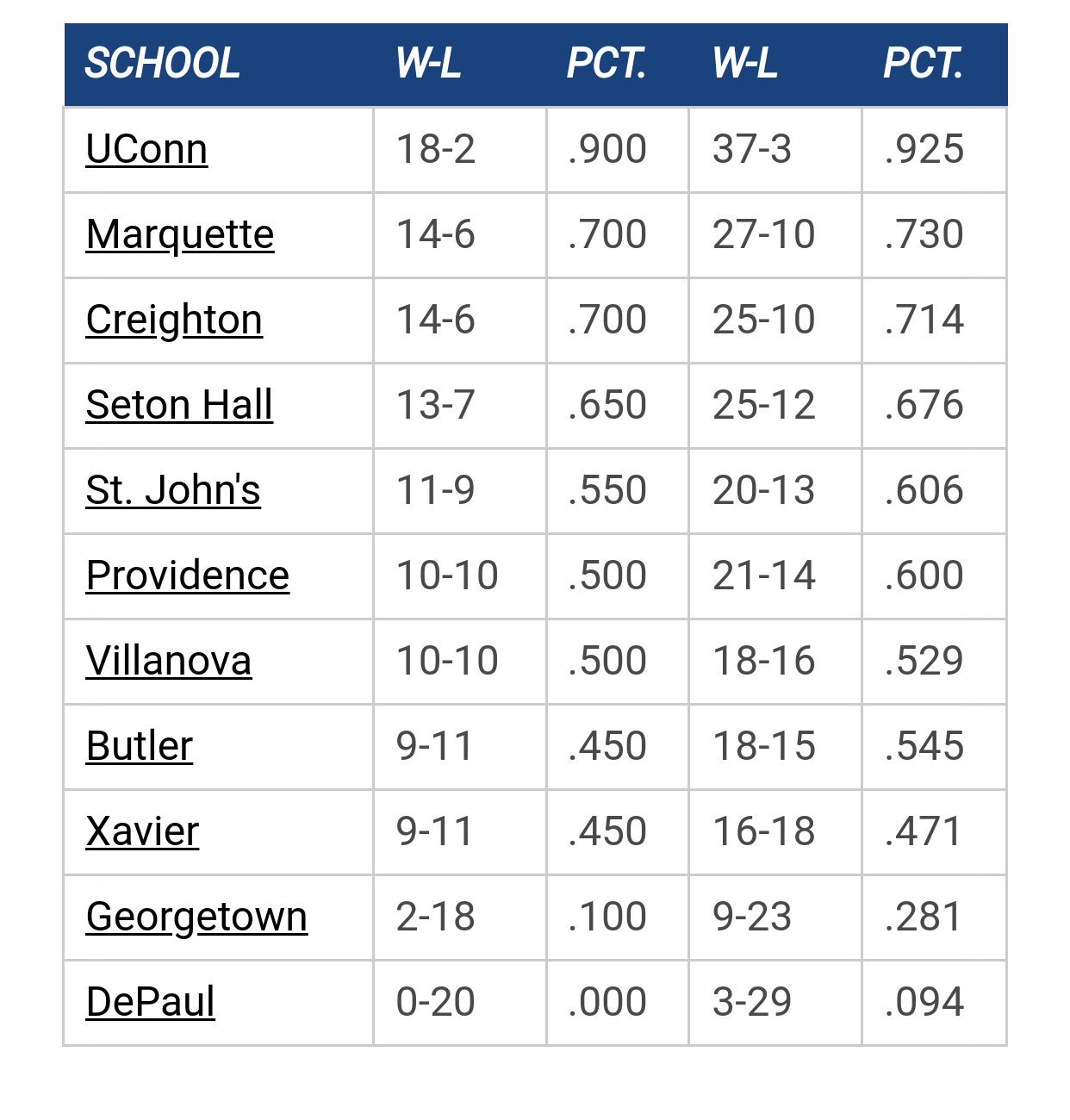|
Big East 2024 Offseason by Herman Cain
[Today at 05:34:15 PM] Crean vs Buzz vs Wojo vs Shaka by MU82 [Today at 03:44:19 PM] 2024-25 Non-Conference Schedule by Nukem2 [Today at 01:57:07 PM] Most Painful Transfers In MUBB History? by Jay Bee [Today at 10:20:49 AM] Marquette NBA Thread by Uncle Rico [Today at 07:00:37 AM] Recruiting as of 3/15/24 by MU82 [May 03, 2024, 05:21:12 PM] [Paint Touches] Big East programs ranked by NBA representation by Hards Alumni [May 03, 2024, 02:02:49 PM] |
The absolute only thing required for this FREE registration is a valid e-mail address. We keep all your information confidential and will NEVER give or sell it to anyone else.
|





